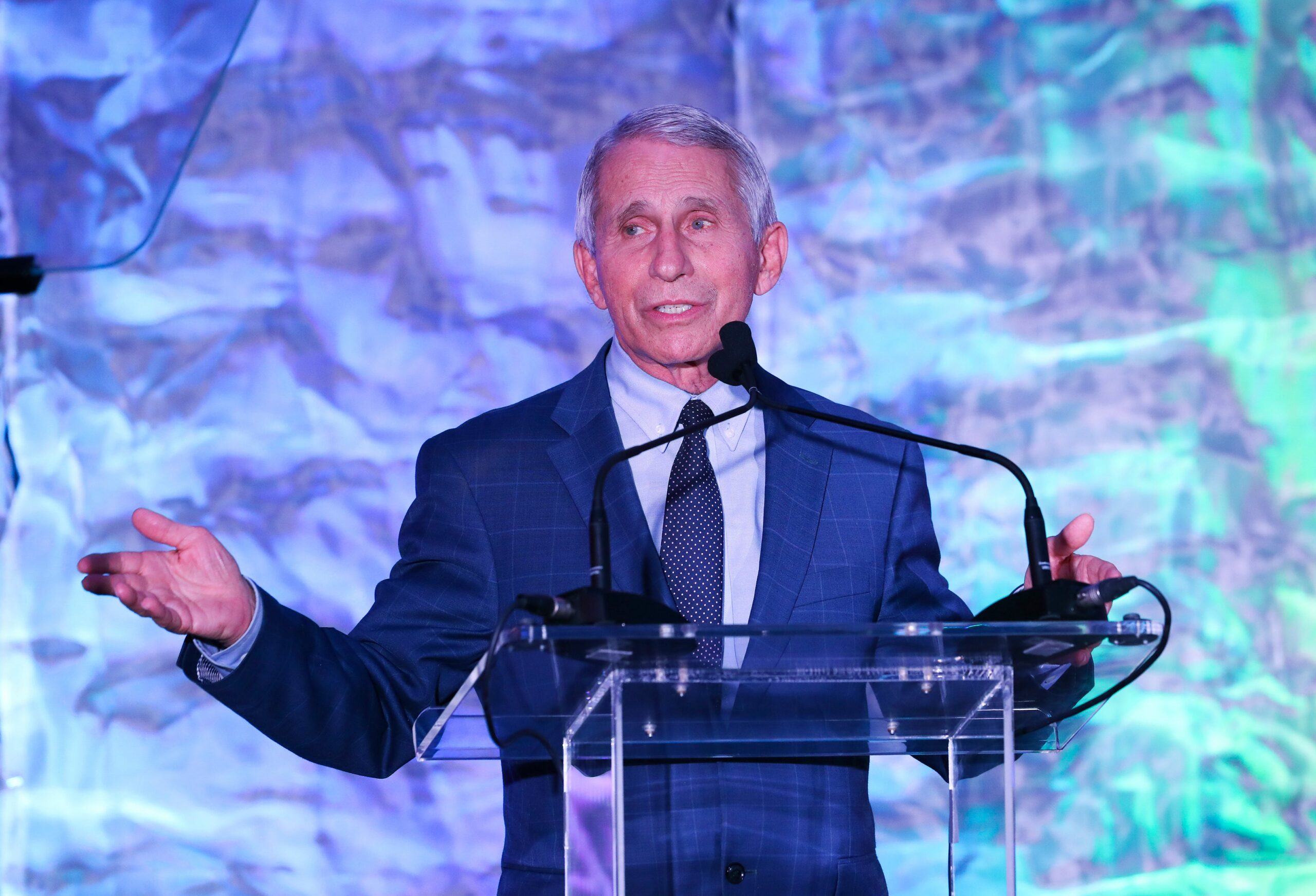Dr. Anthony Fauci said it was during his childhood in Brooklyn that he first encountered the spirit of community care that would guide his more than five decades of government service. His father, a pharmacist, was seen as the area’s family doctor.
“Right from the time that I was born,” Fauci said in a recent interview with IRW, “there was this feeling in the household that it’s important to take care of other people.”
That spirit of community was later cultivated by his education —his Jesuit high school’s motto was “men for others” — and is one that, along with his love of science, drew him into public service, Fauci said. Now, as he prepares for life beyond government, that sense of helping others still guides his plans.
“You ask yourself, ‘What is the best arena in which you can make a contribution?’ and to me, that’s the inspiration of younger people,” Fauci said. “And that’s why I’ve chosen to step down from government at a time when I’m still energetic, while I’m still passionate, and while I’m still — thank goodness — healthy enough to do that.”
Fauci, who will turn 82 on Christmas Eve, announced in August that he plans to step down at the end of December after 50 years at the National Institute of Allergy and Infectious Diseases and as the White House’s chief medical adviser. He plans to write — possibly a memoir — and lecture.
“If that, in fact, inspires young people to at least consider a career not only in science and medicine and public health, but also a career in public service, then I feel that would be something that I could do better now than 30 years ago when my major contribution was scientific,” he said.
During the COVID-19 pandemic, Fauci, who has advised seven presidents, emerged as a larger-than-life figure, personifying the hope and stability so many were desperate for the government to provide. And yet many people saw confusion and even deception in government guidance, especially during the early days and months of the pandemic. Fauci, faithfully nonpartisan, shied away from all of it — reluctant to be demonized or glorified.
“I didn’t want to be public enemy No. 1, nor did I want to be a bobblehead,” he said at a recent conference in Washington, D.C., hosted by The Atlantic, referring to the small plastic toys made in his image that have begun to pop up in stores across the country. “I just want to be what I am — a scientist.”
But that became difficult when threats against him and his family began to emerge over the more than two years that he was the public face of the pandemic response, providing information about what people needed to do, whether and when a vaccine would be ready and what protocols everyone could follow, such as masking, that would help stem the spread of the disease.
He said threats to his own safety he took in stride — he’d had his fair share over the course of his career — but he was clear-eyed about the way it might complicate the road ahead and angry about how his family had been targeted.
“The thing that bothers me the most is the cruelness of the vicious attacks on my children and my wife,” Fauci said. “I chose this life. I’m a target. That’s it. My children didn’t.”
Encouraging young people to enter government service at a time of such political divisiveness is no easy task, he said, and he doesn’t want to downplay the very real danger many public servants and their families face in today’s polarizing climate.
“The fact that I, as a public servant, have to have armed federal agents with me all the time — that is a big disincentive for people,” Fauci said.
He blamed political divisiveness and the spread of disinformation, phenomena he said were exacerbated by social media, for creating such dangerous conditions. He is weary of all of it, frustrated with the way that polarization had fractured the response to the pandemic and drawn him into political debates that he’d largely been able to avoid during his many years in government.
In 2003, President George W. Bush launched the U.S. President’s Emergency Plan for AIDS Relief (PEPFAR); Fauci was a key architect. “They [the parties] had differences in ideology, but the idea of saving lives, transcended any ideological differences,” he said. “And that’s why it was a total bipartisan success, based on the best of American spirit, to take care of others when we can.”
The program was credited with saving 17 million lives and preventing millions more from contracting HIV. These days, Fauci said, he rarely observes that kind of bipartisan cooperation.
“Now I see political divisiveness that actually even interferes with the proper public health response against the common enemy, which is the virus, which has devastated our population, where we’ve had over a million deaths,” Fauci said. “To me, that is unconscionable.”
When he gets caught up in his responsibilities and the onslaught of criticism he receives, it is his wife, Christine Grady, he said, who helps ground him.
“I’m being attacked on a daily basis by the radical QAnon-type people,” Fauci said. “When you get that every day, you gotta have some reality check… and she just is sort of like an anchor.”
In their home in Northwest D.C., Fauci said that he and Grady, who was trained as a nurse and is now one of the nation’s top bioethicists, frequently talk through the issues of the day — which he describes as an incredible back-and- forth.
“It’s not only that she’s an ethicist, but she’s an extraordinarily intellectually brilliant, kind, well-grounded person,” Fauci said, adding later, “She made everything I’ve done possible.”





